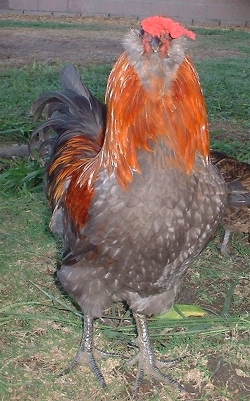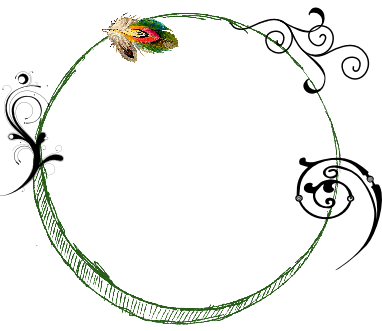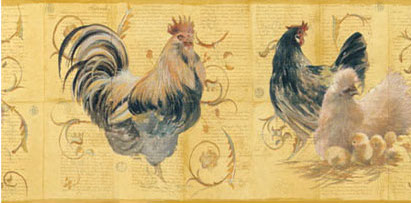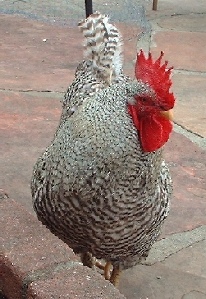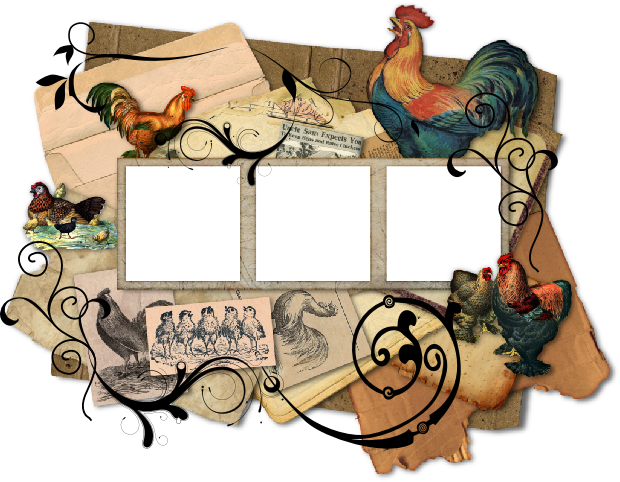The average chicken hatches after 21 days of incubation, is old enough to be on it's
own (away from mama) at 2 months, reaches puberty (hens begin laying eggs, roos begin
mating hens) at 6 months old and have a life span of 6-10 years, give or take a few
years either way. Their life span, of course, depends on their health and lifestyle,
and individual birds may begin laying or crowing earlier or later than average. Personality
traits and behaviors vary widely from breed to breed. Chickens are by nature and
instinctually very social flock animals, and do NOT do well raised singly, without
other chickens. In the absence of other chickens, your lone chicken will bond to
YOU or any other pets you have, such as the family dog. Chickens (and birds in general)
have the intelligence and emotional level of a 2 year old human child. It's important
to realize that chickens have very definite individual personalities, and can and
do feel and display strong emotions such as affection, loneliness, jealousy, fear,
sadness and revenge. They can form special bonds to other specific birds or humans,
and mourn them when they die. If you want to expand your knowledge of chickens, DON'T
just stick to books and websites on chickens--read up on other birds such as parrots
and cockatiels. They have been around as pets much longer than chickens have, and
people have studied their behaviors more. You'll find that what is true of caged
pet birds is also true of chickens--a bird is a bird when it comes to behavior and
emotions! By the way, chickens don’t read the chicken books–they don’t always do
what the book says they do.
As a rule, young birds will be very energetic, playful and stupid. They haven't had
the life experiences to wise them up that old birds have had. Young birds are more
prone to dumb accidents because they are exploring the world. Young birds are also
more friendly towards humans because they haven't learned the hard way that most
humans suck--they can be mean or absentminded. In this respect young chickens are
like young children, innocent and trusting. If you want your chickens to be tame,
handle them frequently when they are young.
Very old birds tend to be mellow and their life experiences have shown them to expect
anything and take it in stride. Older birds may not always want to be picked up and
handled, but they will come around and hang out with you and keep you company. The
older hens tend to be the ones whom the other chickens look to for wisdom, watching
how they react to new things.
In the middle are adult birds that are in their prime. How they react to you depends
greatly on how they were raised as chicks--if raised by other chickens in a barnyard,
with minimal human contact, they will tend to be wilder and less apt to approach
you. Birds that have been raised by humans or handled a lot when young have learned
to trust and love humans, some to the extent that they seem to think that they ARE
humans, and prefer to hang out with you rather than the flock.
Do your hens need a rooster? Well, strictly speaking...no. Hens can get along perfectly
fine without a rooster. Hens will lay eggs and even go broody (set on a clutch of
eggs in an effort to hatch them) with or without a rooster. Roosters merely provide
fertilization for eggs, which you have to have if you plan on hatching any chicks
from your hens' eggs.
Roosters also provide an important part of the flock--the leader, protector, provider,
lover and father figure. In my opinion, hens are much happier with a roo than without
and the flock is more of a cohesive family and community unit with a rooster present.
Hens take as much joy in following a rooster around as he does in escorting them
around the yard. You will get a truer picture of chicken behavior in a flock with
a rooster than without.


